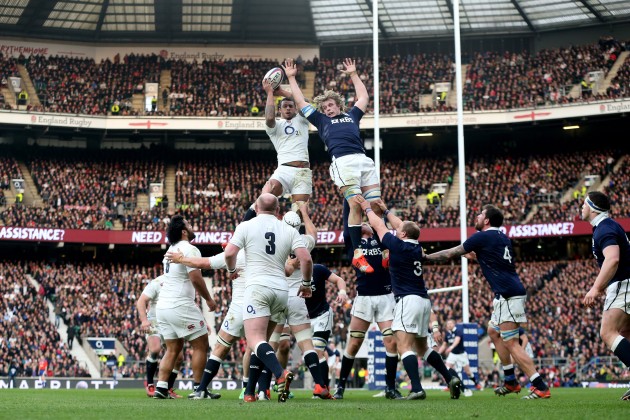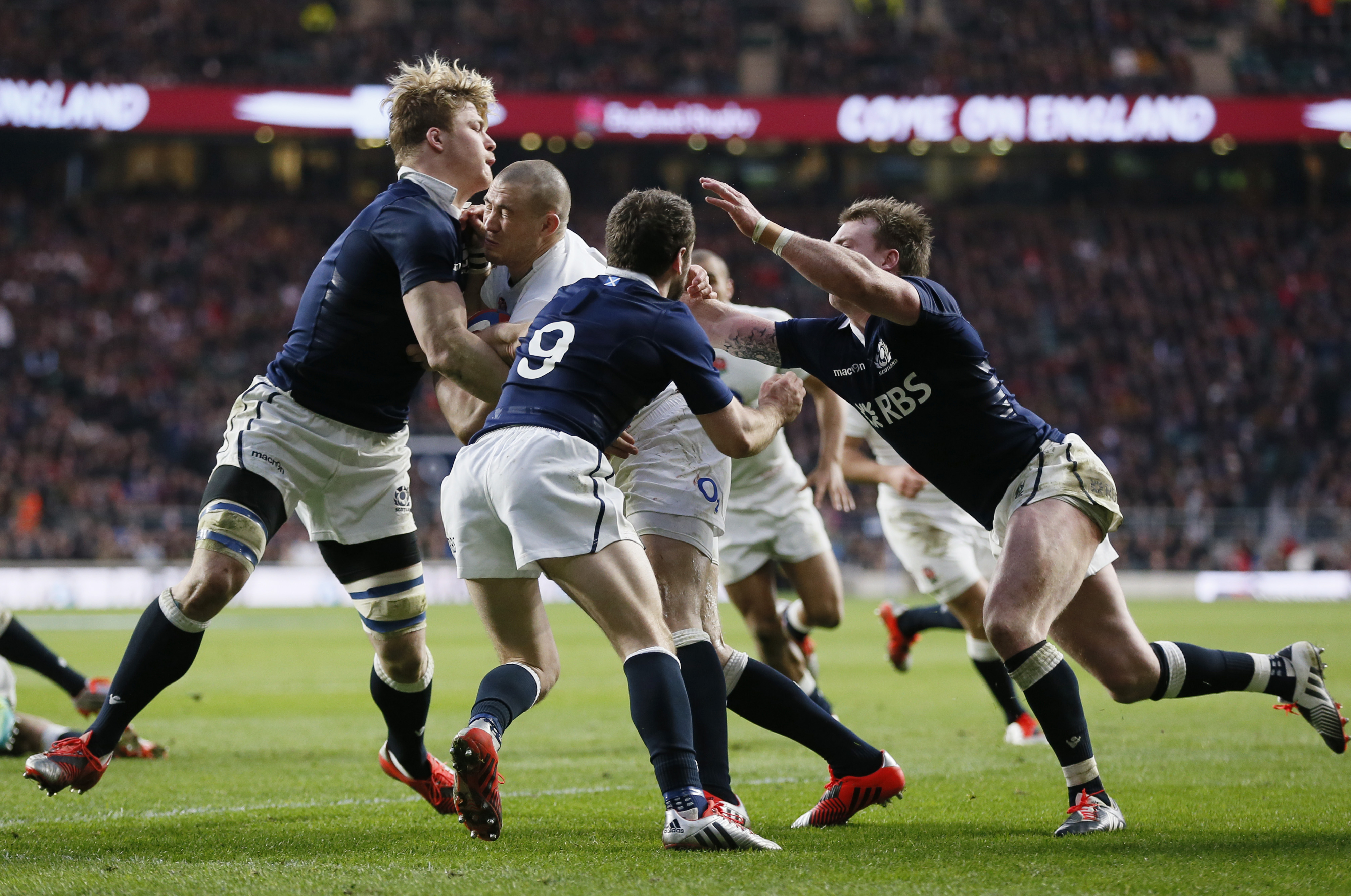Leading at half-time, there was no shame for Scotland at Twickenham, but yet again they pulled up short in what is turning out to be a frustrating campaign
Thank goodness for…
Jonny Gray, Blair Cowan and most importantly Stuart Hogg. These three players continue to perform well, even as those around them fluctuate wildly from the sublime to ridiculous. There are many that called for the return of in-form John Barclay but against England, but Cowan kept a clean disciplinary sheet and was once again a constant threat at the breakdown and a valuable ball carrier. His place is (ironically for Barclay fans) one of the few that is safe. Hogg’s scrambling tackles in the opening spell – when England were running riot – kept Scotland in the game. The cricket score we had feared never materialised and Scotland can take some pride in the way they rallied to lead at half-time.
Dave Denton’s also worth a mention for a muscular ball carrying effort and I suspect he’ll start again next week.
Alex Dunbar was a big loss
Matt Scott will have noted the growing presence of Mark Bennett in the centre while he’s been out injured, and it must have seemed like a long road back to dislodge the incumbent Glasgow pairing. Then fate intervened with an unfortunate ACL injury to Dunbar just before the Scotland team were set to travel, and Scott got a the chance to make his mark.
Unfortunately, Scott was a little too keen to show he’s worth his place by attempting two show stopping interceptions in the first ten minutes, one of which created a gaping space for Joseph to run into for England’s first try. Scott recovered for some nice play during Scotland’s golden 20 minutes in the first half, then retired at half time with a dead leg.
We need a more mature response if he recovers to face Ireland. If you need at least four test level centres in your squad for a big tournament, we’re down to one and a half at the moment and Matt needs his extra fifty per cent back to give us hope.
You fix one thing, and something else breaks
With discipline the major issue of the tournament so far, Scotland fixed that to great effect, only giving away eight penalties to England’s ten.
Positional kicking and concentration were issues early on, so they fixed those and prospered.
Then after half time, Scotland inexplicably failed to retain momentum having worked so hard to wrestle it from England’s grasp. The old failings re-appeared: poor kicking, and playing too much rugby in the wrong areas of the pitch. As a result they were all but passengers in the second half, with nowhere near enough possession and poor use of territory preventing them from coming close to a first win at Twickenham since 1983, even if the scoreline was closer than many had feared.
Quick ball, offloading, aggressive defence
Scotland must do all of the above, more often. When we do it, we score tries. When we kick aimlessly, or sit off the attack, or ball slows to the opposition’s preferred pace – we do not. And then we lose. It really is that simple. Yes, teams will figure out the Plan A and no doubt find ways to impede it, but forgetting to try Plan A is not the same as Plan A not working.
Were there positives?
To a point. The set piece is reliable if not spectacular, and the players mentioned above along with Tommy Seymour and Bennett will form the core of the team for the next few years. You only hope they are paying close attention in defeat, and the media don’t have to keep writing about the same lessons over, and over again…
At the moment it sure feels like it.









